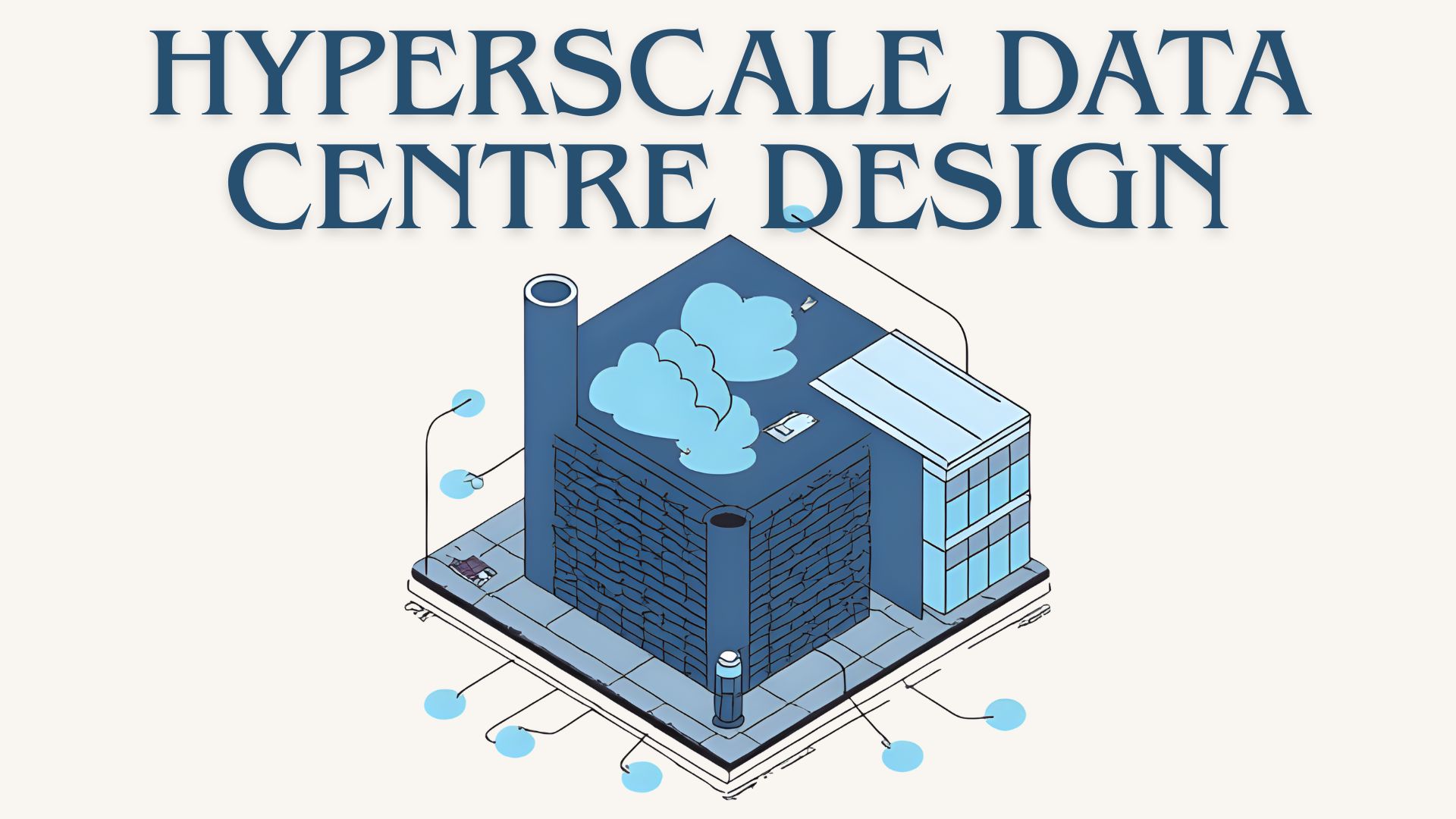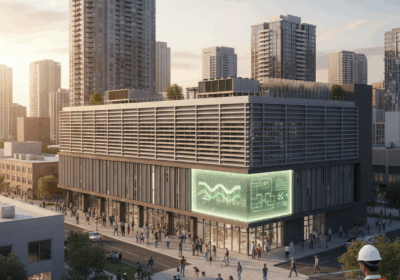Hyperscale Data Centre Design for Emerging Markets

Hyperscale Data Centre Design for Emerging Markets
Navigating Unique Infrastructure Challenges and Unprecedented Opportunities
Emerging markets present a compelling paradox for hyperscale data centre development: rapidly growing digital economies and substantial infrastructure investment opportunities coupled with unique technical challenges that require innovative design approaches. The conventional hyperscale design methodologies developed for mature markets often prove inadequate when confronted with unreliable utility infrastructure, extreme climate conditions, and limited local technical expertise.
The strategic importance of emerging markets continues growing as digital transformation accelerates across developing economies, creating demand for hyperscale infrastructure that can support cloud computing, content delivery, and emerging technologies. Yet successful hyperscale development in these markets requires deep understanding of local conditions, regulatory frameworks, and operational constraints that differ significantly from established data centre markets.
At AuditCo, our partnership with Qcloud has positioned us uniquely to address the specific challenges of hyperscale development across emerging markets. This collaboration combines our global expertise in compliance and risk management with Qcloud’s established presence and deep understanding of emerging market conditions, particularly across the MENA region where local knowledge proves essential for successful project delivery.
Understanding the Emerging Market Landscape
Utility infrastructure reliability represents perhaps the most significant challenge for hyperscale development in emerging markets, where electrical grid stability, power quality, and supply continuity often fall short of the standards required for mission-critical operations. Grid instability can manifest as voltage fluctuations, frequency variations, and unexpected outages that would compromise hyperscale operations without sophisticated power conditioning and backup systems.
The design response to unreliable utility infrastructure requires comprehensive power quality analysis, robust power conditioning systems, and extended backup power capabilities that exceed those typically required in mature markets. This includes advanced voltage regulation, harmonic filtering, and frequency stabilisation systems that ensure consistent power quality regardless of grid conditions.
Backup power system design for emerging markets must account for extended outage durations, fuel supply challenges, and maintenance support limitations that differ significantly from mature market conditions. Generator sizing, fuel storage capacity, and maintenance logistics require careful consideration of local conditions whilst maintaining the reliability standards required for hyperscale operations.
Telecommunications infrastructure varies dramatically across emerging markets, with some regions offering excellent connectivity whilst others struggle with limited international bandwidth and unreliable local networks. Hyperscale facility design must evaluate connectivity options, redundancy requirements, and future expansion capabilities that support operational requirements whilst considering local infrastructure limitations.
Water infrastructure reliability affects cooling system design, with many emerging markets facing water scarcity, quality issues, or supply interruptions that influence cooling technology selection. Hyperscale facilities may require water treatment systems, storage capabilities, and alternative cooling technologies that reduce water consumption whilst maintaining thermal performance.
Transportation infrastructure influences both construction logistics and ongoing operations, with considerations including road conditions, weight restrictions, customs procedures, and equipment availability that affect project planning and operational procedures. Understanding local transportation capabilities enables realistic project scheduling and cost estimation whilst identifying potential supply chain challenges.
Climate Considerations and Environmental Design
Extreme climate conditions in many emerging markets create design challenges that require innovative cooling solutions, building envelope performance, and equipment protection strategies. High ambient temperatures, elevated humidity levels, and severe weather events demand cooling system designs that maintain performance under challenging environmental conditions.
Cooling system design for extreme climates requires careful analysis of ambient conditions, heat rejection capabilities, and energy efficiency requirements that balance performance with operational costs. Air-cooled systems may require oversizing, evaporative cooling systems demand water quality management, and hybrid cooling systems may provide optimal solutions for specific climate conditions.
Building envelope design becomes critical in extreme climates, where thermal performance, moisture control, and weather protection significantly influence facility efficiency and equipment reliability. Advanced insulation systems, vapour barriers, and weather-resistant construction materials ensure optimal internal conditions whilst minimising cooling loads.
Dust and particulate control represent a significant challenge in many emerging market locations, where airborne contaminants can compromise equipment reliability and cooling system performance. Facility design must include sophisticated filtration systems, equipment protection measures, and maintenance procedures that address local environmental conditions.
Seasonal climate variations require cooling systems that maintain efficiency across wide temperature and humidity ranges whilst accommodating equipment derating and performance variations. Design must consider both peak cooling requirements and optimal part-load performance throughout annual climate cycles.
Natural disaster resilience becomes essential in regions prone to seismic activity, flooding, severe storms, or other environmental hazards. Facility design must incorporate appropriate protection measures, emergency procedures, and recovery capabilities that ensure operational continuity despite challenging environmental conditions.
Local Regulatory Frameworks and Compliance Strategies
Regulatory environments in emerging markets often combine international standards with local requirements, creating compliance frameworks that require careful navigation and specialist expertise. Understanding local building codes, safety regulations, environmental requirements, and approval procedures enables realistic project planning whilst ensuring regulatory compliance.
Building code compliance may involve standards that differ significantly from international norms, requiring design modifications, local engineering certifications, and construction procedures that meet regional requirements. Early engagement with local authorities and engineering consultants helps identify compliance requirements and approval timelines.
Environmental regulations increasingly influence hyperscale development as emerging market governments implement sustainability requirements, carbon reporting obligations, and resource consumption limits. Understanding local environmental frameworks enables proactive compliance whilst supporting sustainability objectives.
Import regulations and customs procedures affect equipment procurement, construction schedules, and project costs in ways that require careful consideration during design development. Understanding local import requirements, duty structures, and customs procedures enables realistic project planning and cost estimation.
Labour regulations influence construction procedures, safety requirements, and operational staffing in ways that affect both project delivery and ongoing facility management. Understanding local labour frameworks ensures compliant construction whilst supporting effective operational procedures.
Tax and incentive frameworks may provide opportunities for optimised project structures, reduced operational costs, and enhanced investment returns. Understanding local tax environments enables informed decision-making whilst ensuring compliance with reporting and payment obligations.
Local Expertise and Supply Chain Management
Technical expertise availability varies significantly across emerging markets, with some regions offering excellent engineering capabilities whilst others require extensive training and capacity building programs. Hyperscale project success depends on identifying local technical capabilities, training requirements, and knowledge transfer strategies that support both construction and ongoing operations.
Construction capabilities in emerging markets may require careful evaluation to ensure that local contractors can deliver the precision and quality required for hyperscale facilities. This includes assessment of technical capabilities, quality management systems, and previous experience with similar projects.
Equipment sourcing strategies must balance local availability, import logistics, and quality requirements whilst considering delivery schedules and cost implications. Local equipment availability may reduce costs and delivery times but requires careful quality verification to ensure hyperscale performance standards.
Maintenance support capabilities significantly influence long-term operational success, requiring assessment of local service providers, spare parts availability, and technical support capabilities that ensure reliable facility operations throughout the equipment lifecycle.
Training and capacity building programs enable local technical teams to develop the expertise required for hyperscale operations whilst supporting broader market development. Comprehensive training programs benefit both individual projects and the broader emerging market data centre ecosystem.
Supply chain resilience requires diversified sourcing strategies, local inventory management, and contingency planning that address potential supply chain disruptions whilst maintaining construction schedules and operational requirements.
Technology Adaptation and Innovation Opportunities
Emerging markets often provide opportunities for innovative technology deployment that may not be feasible in mature markets with established infrastructure and operational procedures. These opportunities include advanced cooling technologies, renewable energy integration, and operational automation systems that deliver superior performance whilst addressing local challenges.
Cooling technology innovation may include indirect evaporative cooling, liquid cooling systems, or hybrid technologies that optimise performance for local climate conditions whilst reducing water consumption and energy costs. Emerging markets may provide ideal testing environments for advanced cooling technologies before broader deployment.
Renewable energy integration opportunities in emerging markets may include solar, wind, or other renewable sources that provide cost-effective power whilst supporting sustainability objectives. Many emerging markets offer excellent renewable energy resources and supportive regulatory frameworks for renewable energy development.
Energy storage systems may provide solutions for grid reliability challenges whilst supporting renewable energy integration and demand management strategies. Battery storage, thermal storage, or other energy storage technologies may deliver superior performance in emerging market environments.
Automation and remote monitoring technologies enable efficient facility management despite potential limitations in local technical expertise. Advanced monitoring systems, automated maintenance procedures, and remote diagnostic capabilities support optimal facility performance whilst reducing operational requirements.
Prefabrication and modular construction techniques may address local construction capability limitations whilst accelerating project delivery and ensuring consistent quality. Modular systems enable off-site fabrication with precision manufacturing whilst simplifying on-site installation procedures.
Financial Structures and Risk Management
Project financing in emerging markets requires careful consideration of currency risk, political risk, and market volatility that may affect project viability and investor returns. Understanding local financial markets, currency hedging strategies, and political risk insurance enables informed investment decisions whilst protecting project economics.
Construction risk management requires comprehensive analysis of local conditions, contractor capabilities, and potential project challenges that may affect delivery schedules and costs. Risk mitigation strategies may include performance bonds, insurance coverage, and contingency planning that address identified risks proactively.
Operational risk management addresses ongoing challenges including currency fluctuations, regulatory changes, and market conditions that may affect facility performance and investment returns. Comprehensive risk management frameworks enable proactive responses to changing conditions whilst maintaining operational performance.
Insurance coverage in emerging markets may require specialist policies that address local risks, regulatory requirements, and operational challenges. Understanding local insurance markets and coverage options ensures adequate protection whilst managing insurance costs effectively.
Revenue model considerations may include local market conditions, customer requirements, and competitive dynamics that influence pricing strategies and service offerings. Understanding local market conditions enables informed business model development whilst ensuring competitive positioning.
Exit strategy planning addresses potential changes in market conditions, regulatory environments, or investment priorities that may affect long-term facility ownership. Comprehensive exit planning ensures investment flexibility whilst maintaining operational continuity during ownership transitions.
Cultural Integration and Stakeholder Management
Community engagement represents a critical success factor for hyperscale development in emerging markets, where local relationships, cultural sensitivity, and community benefits significantly influence project acceptance and regulatory approval. Effective community engagement requires understanding of local cultures, stakeholder priorities, and communication preferences.
Government relations in emerging markets often require sustained engagement with multiple agencies, regulatory bodies, and political stakeholders who influence project approval and ongoing operations. Understanding local political environments and stakeholder relationships enables effective government engagement whilst ensuring regulatory compliance.
Local partnership strategies may provide access to market knowledge, regulatory expertise, and operational capabilities that support project success whilst addressing local content requirements or partnership obligations. Effective partnerships require careful partner selection, clear governance structures, and aligned objectives.
Cultural training for international project teams ensures effective collaboration with local partners, contractors, and regulatory authorities whilst demonstrating cultural sensitivity and professional competence. Comprehensive cultural training supports project success whilst building positive local relationships.
Environmental and social impact management addresses community concerns, environmental protection, and social responsibility requirements that influence project acceptance and regulatory approval. Comprehensive impact management demonstrates corporate responsibility whilst supporting sustainable development objectives.
Capacity building contributions to local markets may include training programs, technology transfer, and infrastructure development that benefit broader community development whilst supporting project objectives. Strategic capacity building creates positive community impact whilst developing local capabilities that support ongoing operations.
The Regional Advantage: Leveraging Local Market Expertise
Our partnership with Qcloud provides AuditCo with unparalleled access to emerging market expertise, particularly across the MENA region where Qcloud’s established presence and deep local knowledge prove essential for successful hyperscale development. This regional expertise encompasses regulatory understanding, cultural sensitivity, and technical capabilities that enable effective project delivery in challenging market conditions.
Local regulatory navigation benefits from established relationships with government agencies, regulatory bodies, and approval authorities that can accelerate project timelines whilst ensuring compliance with complex regulatory frameworks. This local knowledge prevents costly delays and design modifications that often affect international developers entering new markets.
Cultural integration services ensure that international project teams can work effectively with local partners, contractors, and stakeholders whilst demonstrating appropriate cultural sensitivity and professional competence. This cultural expertise prevents misunderstandings and relationship challenges that can compromise project success.
Technical capability development leverages local engineering talent, construction capabilities, and operational expertise whilst providing training and knowledge transfer that builds long-term local capabilities. This approach supports both project success and broader market development objectives.
Supply chain optimisation utilises established local supplier relationships, procurement procedures, and logistics capabilities that reduce costs and delivery risks whilst ensuring quality compliance. Local supply chain expertise prevents the challenges that often affect international developers unfamiliar with local market conditions.
Risk mitigation strategies address the unique challenges of emerging market development through comprehensive local knowledge, established relationships, and proven procedures that minimise project risks whilst optimising performance outcomes.
Conclusion: Unlocking Hyperscale Potential in Emerging Markets
Emerging markets represent some of the most compelling opportunities for hyperscale data centre development, offering rapidly growing digital economies, substantial infrastructure investment potential, and innovative technology deployment opportunities. However, success requires deep understanding of local conditions, regulatory frameworks, and operational challenges that differ significantly from mature market development.
Our partnership with Qcloud enables AuditCo to deliver the comprehensive emerging market expertise that hyperscale operators require for successful facility development across diverse developing economies. By combining global technical standards with local market knowledge, we help clients navigate the unique challenges of emerging market development whilst capitalising on unprecedented growth opportunities.
The investment in specialist emerging market expertise represents essential preparation for successful hyperscale development in these dynamic markets. For hyperscale operators seeking to establish world-class facilities that serve growing digital economies whilst generating superior returns, comprehensive emerging market capabilities provide the strategic foundation for achieving these objectives.
AuditCo provides comprehensive audit, inspection, and compliance services for digital infrastructure projects worldwide. Our partnership with Qcloud enables integrated design-build-comply solutions that address the unique challenges of hyperscale development across emerging markets, particularly in the MENA region. For more information about our emerging market services, please contact our team at info@auditco.com.au



